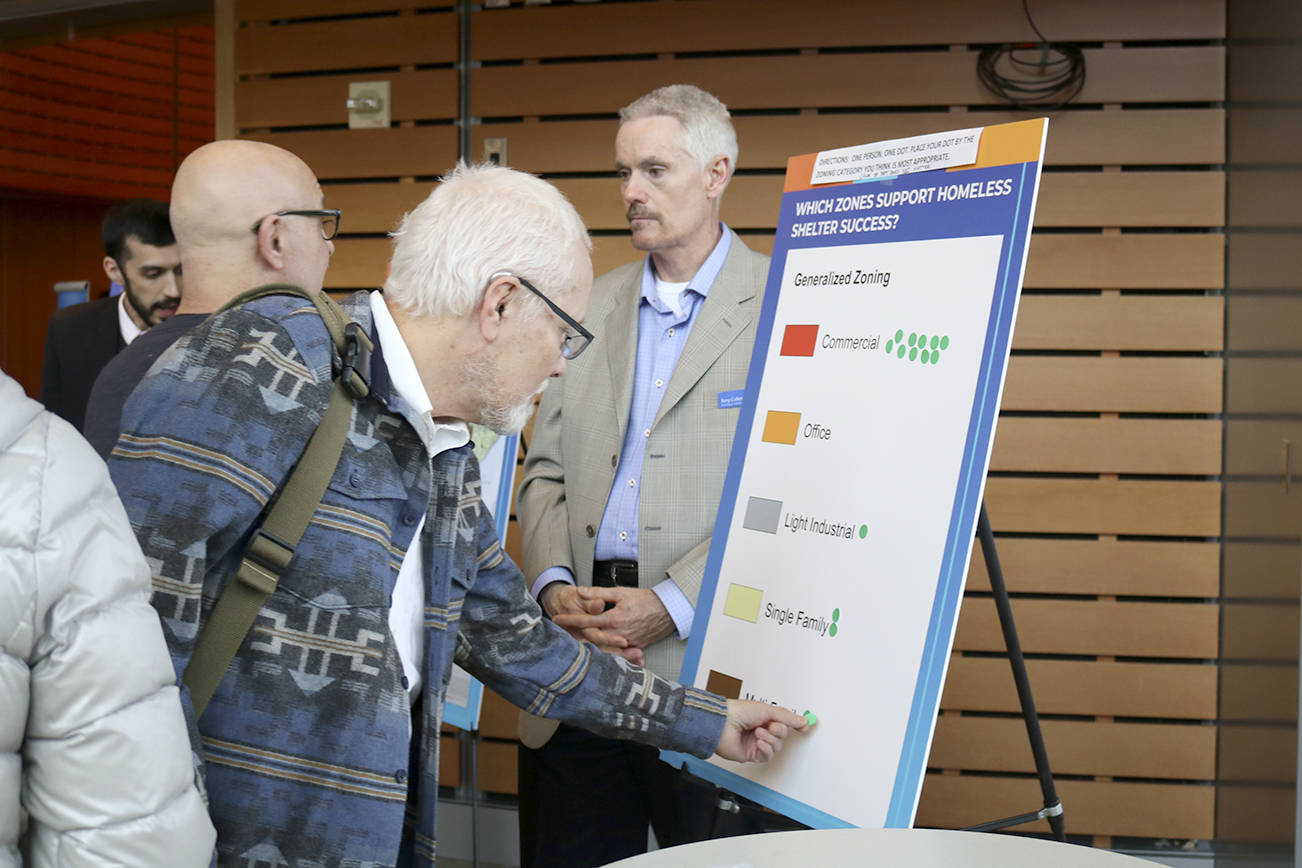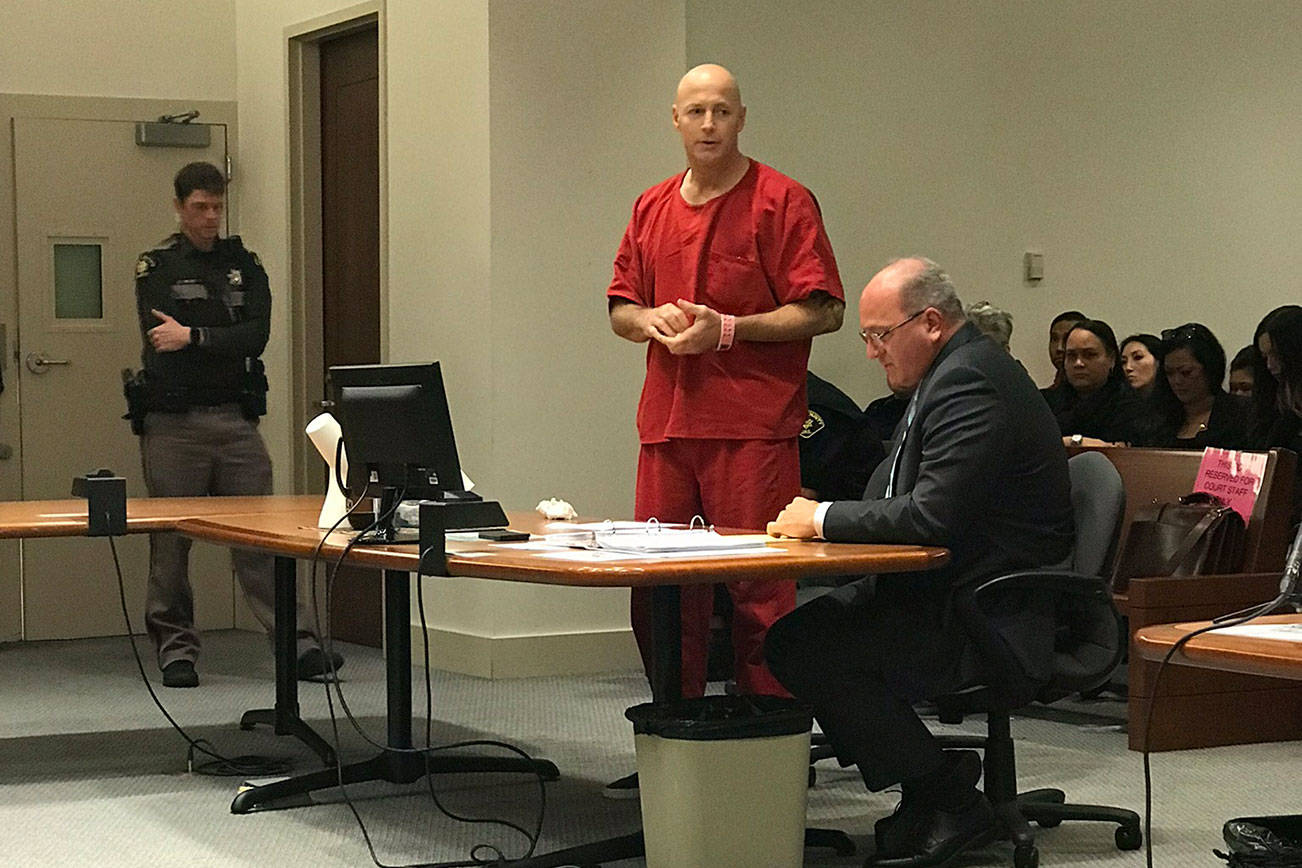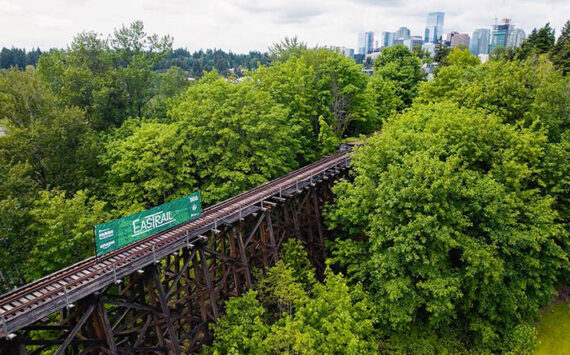• A 16-year-old boy faces a second-degree murder charge for driving a pickup truck in an incident that resulted in the death of a Kent police officer.
Early Sunday morning on July 22, Emiliano Garcia was allegedly driving at speeds of 75 to 95 mph on a 50 mph road in without his headlights off. In an effort to stop Garcia, Kent Police Officer Diego Moreno deployed road spikes, but was hit by another police officer who was pursuing Garcia in a squad car and died at the scene. Garcia crashed as a result of the spikes, fled on foot, and was eventually arrested at his father’s home 12 hours later.
Charges were filed on Wednesday, July 25 by the King County Prosecutor’s Office against Garcia, who is currently held at King County Youth Services Center in Seattle with bail set at $1 million. His arraignment is scheduled for Aug. 2. Two passengers in Garcia’s truck at the time of the incident, both aged 17, were charged with unlawful possession of a firearm and possession of controlled substances.
County prosecutors are arguing that Garcia was committing a dangerous felony by trying to evade police and that this behavior created grave risk to the public and police, ultimately resulting in the death of Officer Moreno.
Moreno’s death prompted widespread community grief in Kent. Candles were lit at a well-attended community vigil held on July 25 at Town Square Plaza in Kent. “Charging these suspects is an important first step to helping Officer Moreno’s family, the Kent Police Department, and the entire community as we work toward healing,” said Kent Police Chief Rafael Padilla. Renton Reporter
• The Sound Transit Link Light Rail extension to Federal Way will cost $460 million more than expected due to skyrocketing construction costs across the rapidly growing central Puget Sound region.
At a Sound Transit Board meeting on July 26, agency staff and CEO Peter Rogoff presented projections that the line, which was originally expected to cost $2.08 billion, will now likely cost $2.54 billion as a result of spiking labor costs and the price of construction materials.
According to an Association of General Contractors report cited by Sound Transit, prices for lumber and plywood (18.3 percent), ready-made concrete (7.5 percent), and diesel fuel (52 percent) all jumped between 2017 and 2018. Property prices are also rapidly escalating across the region, adding to the agency’s financial headache.
In order to minimize costs, Sound Transit plans to hire one contractor to design and build the project, rather than hiring two separate firms.
Construction for the project is slated to begin in 2019 and finish by 2024. It will be the next stop south from the existing Angle Lake Station. However, if a federal grant isn’t received to help pay for construction, the agency might need to delay the scheduled 2024 opening date. Sound Transit staff expect to know in 2019 if they will receive any federal funds for the project. Kent Reporter
• A new report from the University of Washington Bothell found that air quality in western states such as Washington is worsening due to chronic wildfires.
Professor Dan Jaffe and doctoral student Crystal McClure analyzed fine air particulate matter data from rural monitoring stations dating back to 1998. They argue that the steady escalation in the amount of particulate matter in the air is due the increasing frequency and duration of wildfires since 1980, exacerbated by drier conditions as a result of climate change.
“This is another nail in the coffin that climate change is real and is happening now,” Professor Jaffe said in a press release.
According to the Union of Concerned Scientists, the average length of wildfire seasons was around five months in the early 1970s, but has increased to over seven months. During the same time span, annual temperatures in the western U.S. have increased by roughly 2 degrees, leaving forests drier for longer periods of time and leading snowpacks to melt away quicker. Additionally, by mid-century, temperatures in the western U.S. are expected to rise an additional 2.5 to 6.5 degrees due to greenhouse gas emissions produced by humans. Bothell-Kenmore Reporter
• With a tight 4-3 vote, the Bellevue City Council approved land use changes to allow for new homeless shelters in the city. The legislation would create a process for shelter operators to apply for permits, as well as institutionalize neighborhood feedback through an advisory committee, which would provide input on the design and development of any facilities.
Previously, seasonal homeless shelters had only been permitted in parts of the city also zoned for hotels and motels. But pressure has been mounting on Bellevue elected leaders to allow for more homeless services within city limits given the escalating nature of the regional homelessness crisis and the fact that Bellevue, Kirkland, and Redmond have all entered a joint agreement to increase shelter capacity.
The ordinance passed by a close vote on July 13. Councilmembers John Stokes, Janice Zahn, Deputy Mayor Lynne Robinson and Mayor John Chelminiak voted for it, while Jennifer Robertson, Conrad Lee and Jared Nieuwenhuis opposed it.
Councilmember Nieuwenhuis said at the July 16 meeting that he had to oppose the ordinance because it lacked requirements for buffers or separation between potential homeless shelters and single-family neighborhoods and schools.
Similarly, Councilmember Robertson argued prior to the vote that allowing homeless shelters in residential neighborhoods is problematic. “Allowing the shelter to be built literally next door to residential neighborhoods or schools when we are fully aware there is a 1,300-foot increased criminal activity impact halo around low-barrier shelters—and we know this will keep some people in need of services from being able to both comply with the terms of their community supervision and obtain those services—to me, is a fatal flaw,” she said.
Robinson said at the meeting that creating shelter for the local homeless population is a priority for the city due to the deaths caused by cold exposure over the past decade. She also said that it is time for Bellevue to joint its neighboring cities in offering more shelter. Bellevue Reporter









